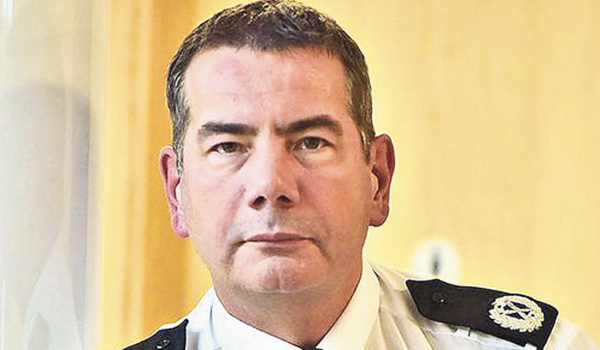'Serious concerns' over performance of criminal justice system
Four criminal justice inspectorates – HM Inspectorate of Constabulary and Fire and Rescue Services (HMICFRS), HM Crown Prosecution Service Inspectorate, HM Inspectorate of Probation and HM Inspectorate of Prisons – have today (May 17) published a joint report updating their findings on the impact of the pandemic on the criminal justice system.
The inspectors said they share “serious concerns” about the fact that the system continues to operate at “unacceptable levels” in England and Wales and is far from recovering after the “shock” of coronavirus.
Andy Cooke, chief inspector of constabulary, Charlie Taylor, chief inspector of prisons, Justin Russell, chief inspector of probation and Andrew Cayley, chief inspector of the Crown Prosecution Service (CPS), issued the warnings ahead of all four appearing before the Justice Committee this afternoon.
Describing the system as being in a “parlous state” before the pandemic, the latest report said the Covid “shock” has “made it worse”, adding: “Such unacceptable delays have an adverse impact on victims and defendants, and have a knock-on effect on other criminal justice agencies.”
It said that although the “constraints on daily life have now been dropped, the criminal justice system is a long way from recovery and in some parts continues to operate at unacceptable levels”.
The inspectors added: “Prisoners still spend 22.5 hours a day in their cell, hundreds of thousands of hours of unpaid work go uncompleted in the probation service, and crown court backlogs remain high.”
Speaking on behalf of the four inspectorates, Mr Taylor told the PA news agency: “If we don’t get these things right, if we don’t get people through the courts reasonably quickly, if we don’t have prisons that are able to genuinely rehabilitate people … then what we’ll find is that people will come out from custody with the danger they’ll commit more crime and we’ll see more victims and that’s not acceptable.”
The report reflects “our serious concerns about the ability of the criminal justice system to recover, even to its pre-Covid state”, Mr Taylor said, adding: “The impact of the pandemic will be felt for a prolonged period and whole-system recovery will take a lot longer than initially anticipated.
“We are particularly concerned at the absence of an overarching recovery plan. Instead, each part of the system is operating in isolation and left to determine its own course. Taken together, this presents a very mixed picture and progress is likely to be disjointed.”
The findings highlight the challenges faced across the board due to “increasing demand, funding constraints, workforce pressures and low public confidence”, as well as raising “particular concerns” about the backlogs which were exacerbated by the pandemic.
Most criminal justice bodies are “not yet able to recover to their pre-Covid-19 position” and recovery is likely to be “disjointed” and risks “further fracturing” the system unless there is a coordinated plan across the board.
While the “hard work and commitment of staff” during the crisis was praised, the report said recovery “remains elusive” after none of the risks the four bodies previously identified were “mitigated in their entirety”.
The report also cited figures which showed that by the end of December, 25 per cent of cases (14,612 cases) had been waiting for a year or more to come to court, and the number of cases waiting longer than a year had increased by more than 340 per cent since March 2020.
The Law Society of England and Wales said the Government must “heed the growing number” of watchdogs and professional bodies “raising the alarm about the crisis in the criminal justice system”, while the Criminal Bar Association said the report “rightly concludes that there still seems to be no coherent plan whatsoever from Government to righting the sinking ship that it holed years ago before the pandemic”.
A Government spokesperson said: “Thanks to the almost half a billion we have invested and the extra measures we have taken to bring down the crown court backlog… the number of outstanding cases is falling and we have now eased the restrictions across our prisons which kept staff, prisoners and the wider community safe.
“We have over 4,000 more prison officers than in 2016 and are recruiting probation officers at record levels to improve public protection.”







